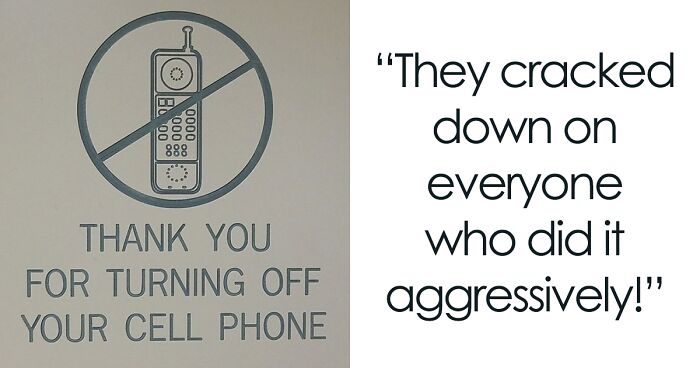
Management Tell Employees They Can’t Use Their Phones After Work, Regret It Almost Immediately
Some sort of change at work is often inevitable. But when the alterations result in numerous employees complaining, it might make sense to listen to what they have to say and reevaluate.
Redditor u/Reyim6 told the ‘Malicious compliance’ community about their bosses refusing to budge when the employees said the newly implemented rules were harming the workflow. Soon after the changes, chaos in the workplace ensued; and that’s when the management turned to the employees asking what they could do to fix the mess they made.
Certain changes in the workplace might not be beneficial for the company, nor for the employees
Image credits: Ono Kosuki (not the actual photo)
This person’s employer banned phone use at a certain time, this way disturbing the typical workflow
Image credits: Bryan Alexander (not the actual photo)
Image source: Reyim6
Employees feeling heard can benefit both the worker and the company likewise
Image credits: Yan Krukau (not the actual photo)
Taking employees’ comments into consideration might be the sensible thing to do, considering that they’re the ones taking care of the daily operations. However, some employed people—19% of them, to be exact—don’t feel heard by their employer. The number was revealed by a 2021 survey of 4000 employees in 11 countries, conducted by The Workforce Institute at UKG and Workplace Intelligence, which also pointed out that the majority of workers (86%) don’t think everyone’s heard fairly or equally in their workplace.
The survey showed that even people who feel heard at work might not think their opinion is taken into account, especially when it comes to benefits, safety, and time off; 70% of them believe so. Moreover, 40% say they don’t think their feedback leads to any tangible change in the company’s processes.
According to the survey, feeling heard correlates to higher employee engagement. It disclosed that 92% of highly engaged workers feel heard compared to 30% of highly disengaged ones. Zippia pointed out that a disengaged employee can cost the company roughly 34% of their annual income, meaning $3,400 for every $10,000 it makes might go down the drain.
The problem with work-related phone use is typically a reversed one
Image credits: Karolina Grabowska (not the actual photo)
Employees in the OP’s company tried expressing dissatisfaction to their managers, as they saw the negative effect the change had on their day-to-day at work. The hurdles they now had to overcome were a likely motivator for them to express their opinion. Statistics show that employees are typically more than willing to provide their insight in general; PRNewswire pointed out that based on Explorance’s 2021 survey, nearly 80% of employees are eager to fill company surveys and provide feedback.
The thing the employees were discontent about was the new restrictions related to phone use outside of working hours. Though, the problem with work-related phone use is often a reversed one—people are required and not willing to check their device after work.
According to Skynova, roughly 26% of employed people in the US receive calls from their boss after work at least several times a week, and nearly 64% believe it should be illegal. (Even though the same percentage—64%—answer such calls nevertheless.) As a matter of fact, in some countries, such as Belgium and Portugal, for instance, certain policies that limit such communication are already implemented.
Be that as it may, the OP and his colleagues didn’t mind spending 10 minutes of their personal time for work-related communication. They had a certain way of doing things that seemed to be working for those involved, which is why they weren’t rooting for the new arrangement. But the management didn’t seem to hear what they had to say.
The OP revealed more details about the company in the comments
Redditors used the comments section to share their opinions
Some people discussed similar personal stories
Management: *gets paid a LOT more* Also management: "We have no idea how to solve the problem we ourselves created through our own ineptitude. Let's ask the employees who make a lot less to do our job and come up with a solution which we can then take credit for."
The fact that management didn't know why employees were using the phones during non-work hrs says a lot. They don't seem to be aware of how the employees do their job.
Load More Replies...The place I work for now, if you call to ask me a question after hours, or days off, that's 4 hours pay. Even if it takes me 15 minutes to tell you something you already knew.
I agree with you. I elaborated in another comment here. But I'd love to be able to turn off the phone. Idk if schedules change day of and a meeting or 2 is cancelled.
Load More Replies...Management: *gets paid a LOT more* Also management: "We have no idea how to solve the problem we ourselves created through our own ineptitude. Let's ask the employees who make a lot less to do our job and come up with a solution which we can then take credit for."
The fact that management didn't know why employees were using the phones during non-work hrs says a lot. They don't seem to be aware of how the employees do their job.
Load More Replies...The place I work for now, if you call to ask me a question after hours, or days off, that's 4 hours pay. Even if it takes me 15 minutes to tell you something you already knew.
I agree with you. I elaborated in another comment here. But I'd love to be able to turn off the phone. Idk if schedules change day of and a meeting or 2 is cancelled.
Load More Replies...
 Dark Mode
Dark Mode 

 No fees, cancel anytime
No fees, cancel anytime 







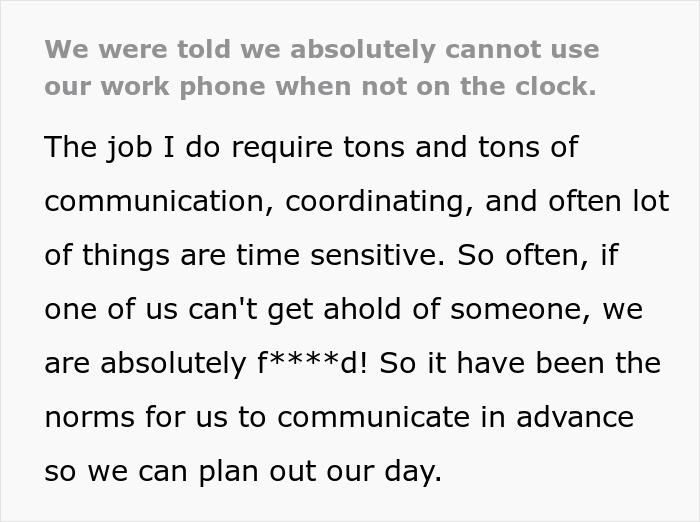
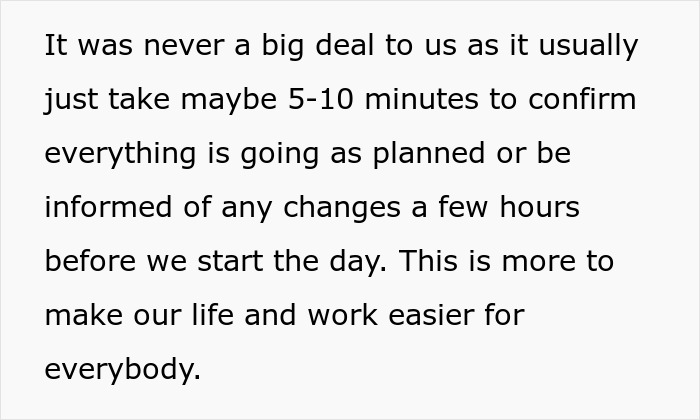
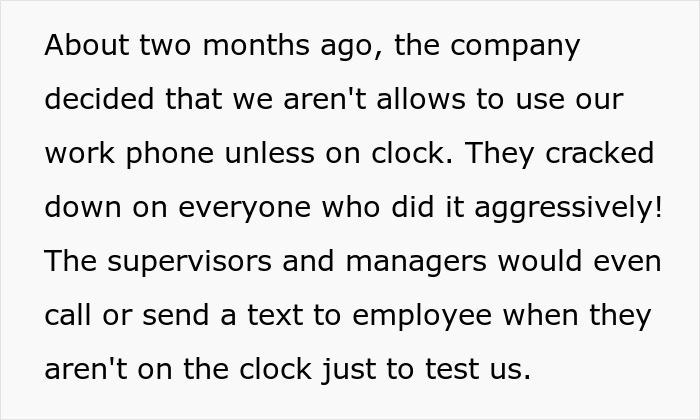
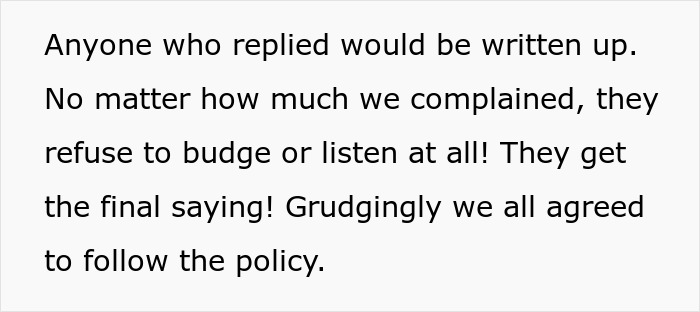

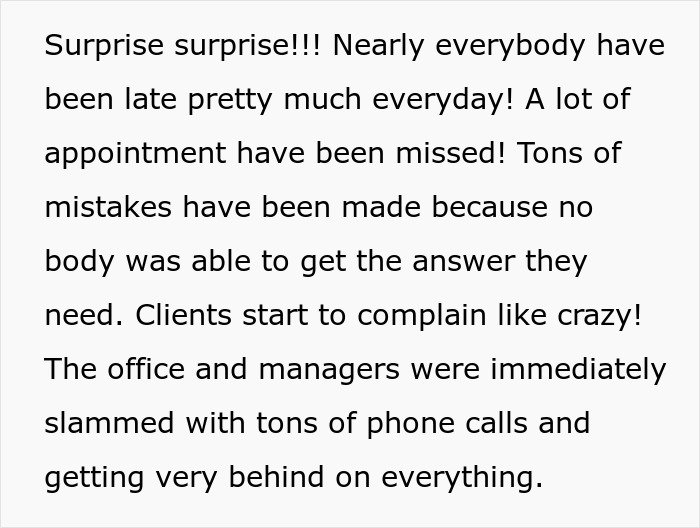
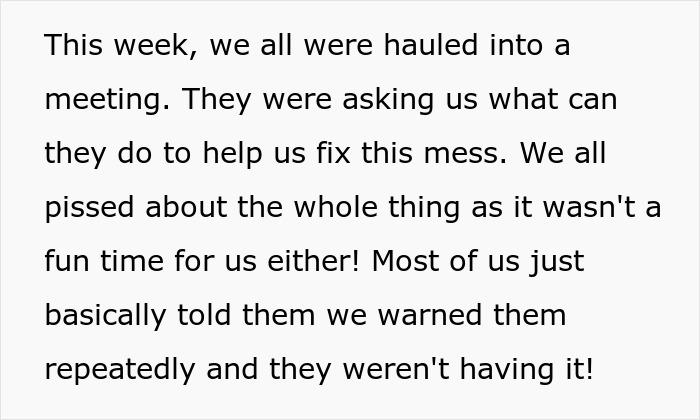

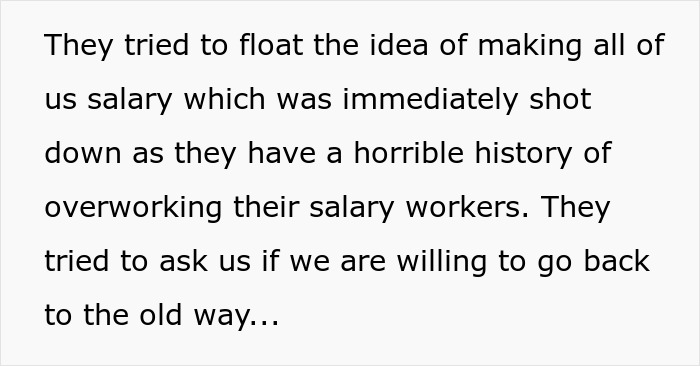
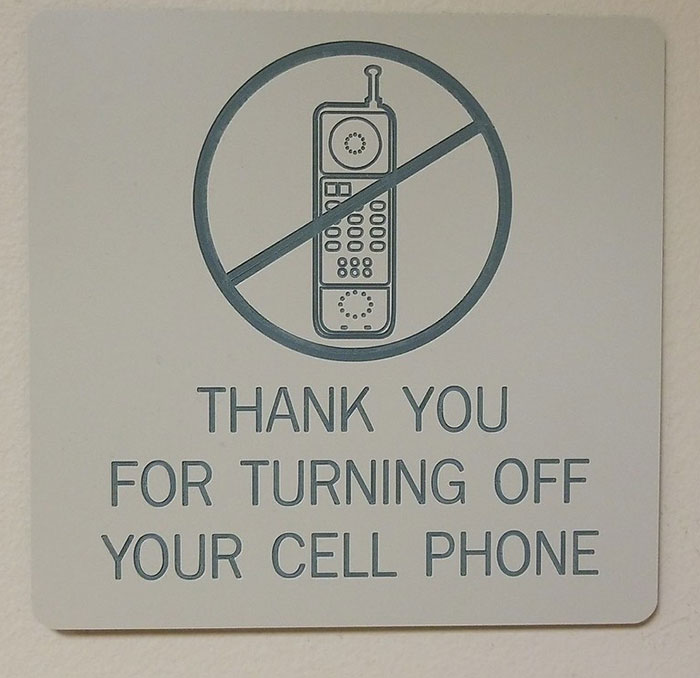
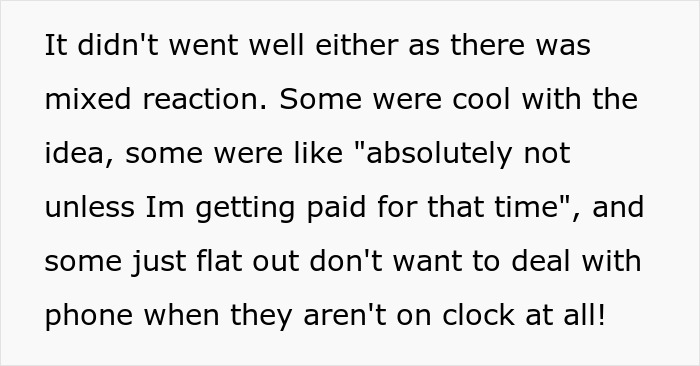
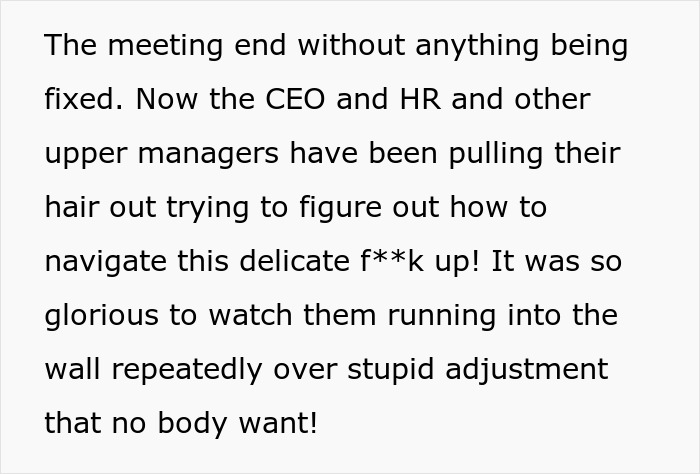


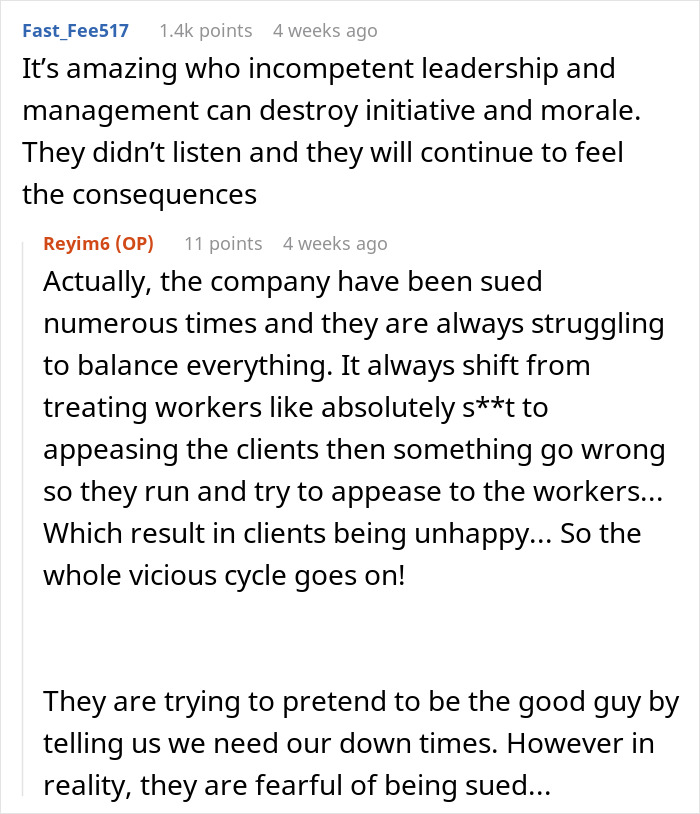
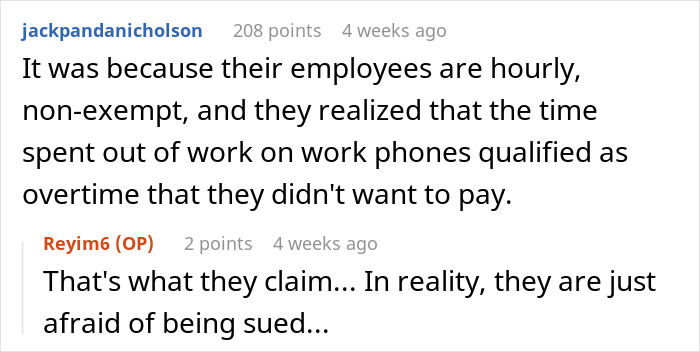

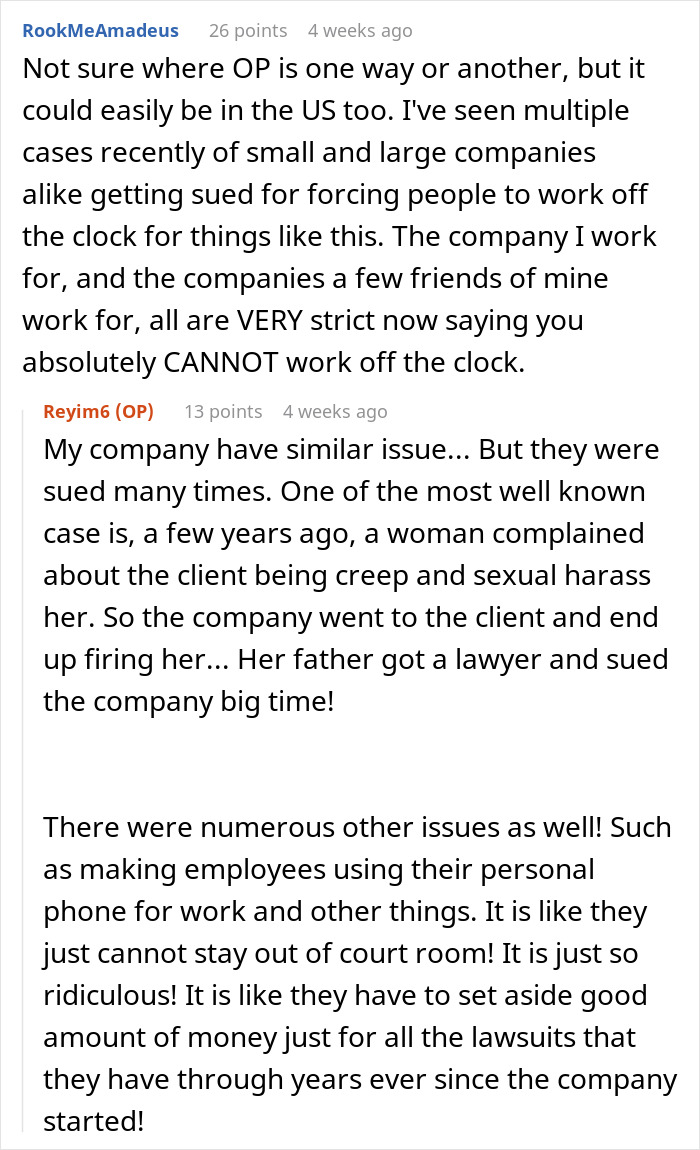



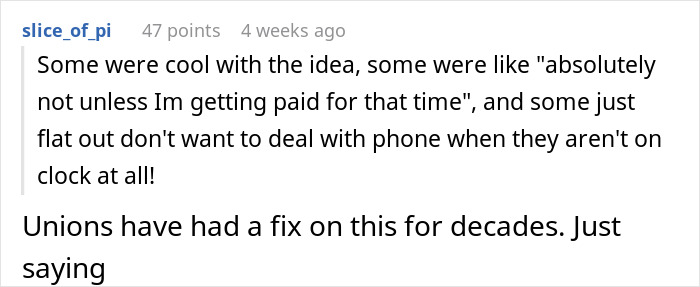




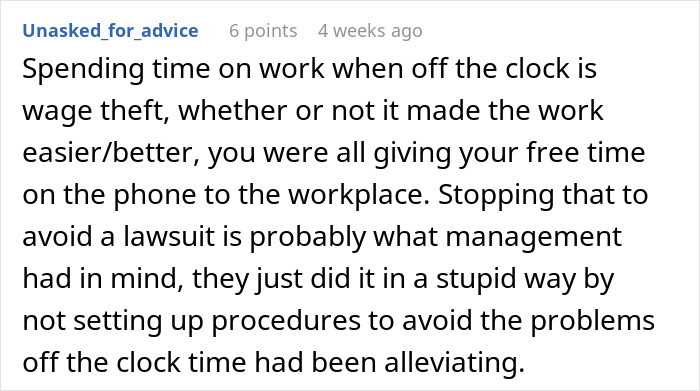
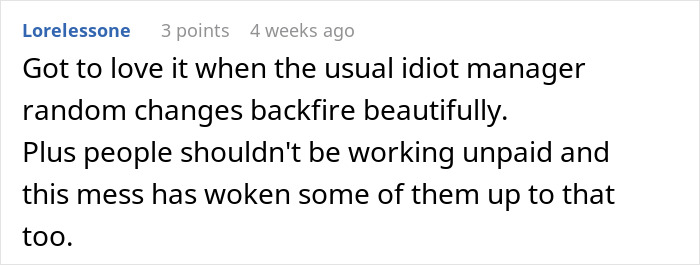


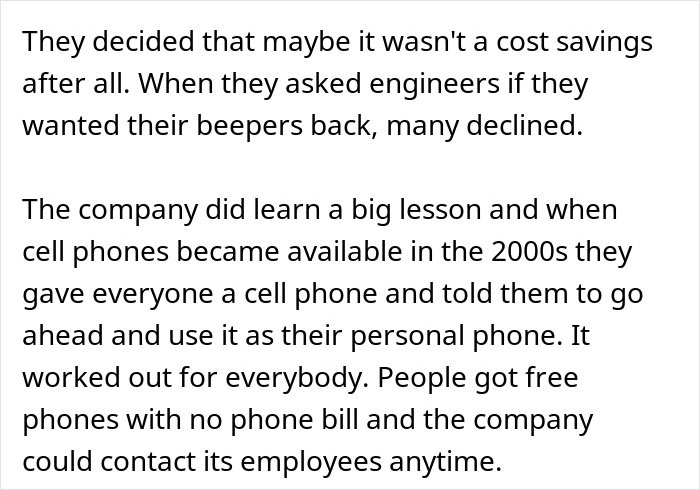













































61
11